A Comprehensive Report on Dyslexia: Symptoms, Causes, and its Impact
VerifiedAdded on 2023/04/24
|7
|665
|163
Report
AI Summary
This report provides an overview of dyslexia, a learning disorder that affects reading and writing abilities in children. It details the causes of dyslexia, including potential genetic factors and impacts on phoneme processing. Key symptoms such as difficulty in learning new words, problems with word formation, and challenges in understanding spoken language are discussed. The report also highlights the impact of dyslexia on social interactions and academic performance, as well as the potential effects of prenatal risk factors on brain development. References to relevant research are included, offering a comprehensive understanding of dyslexia and its implications. Desklib provides similar solved assignments for students.
1 out of 7
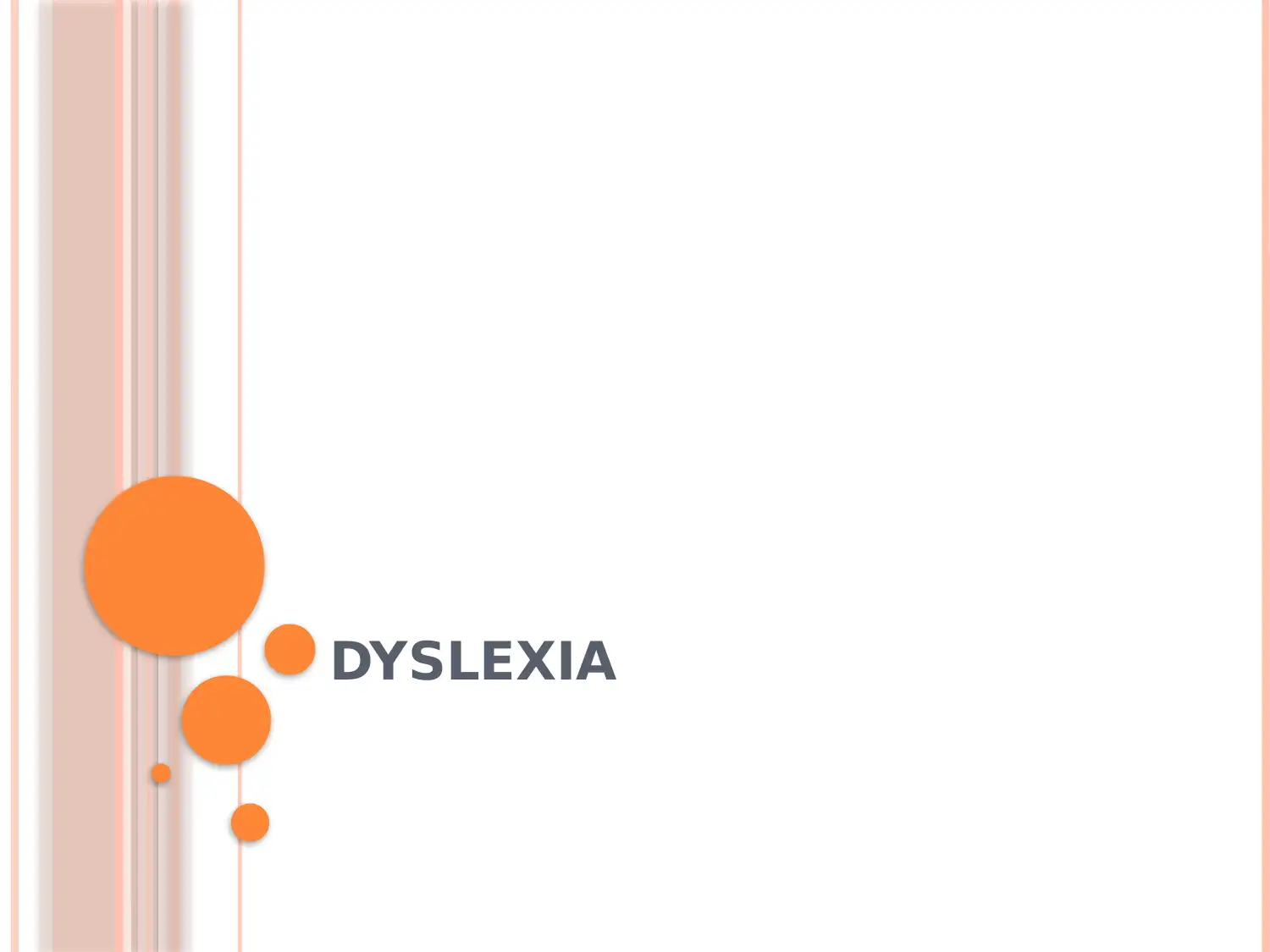
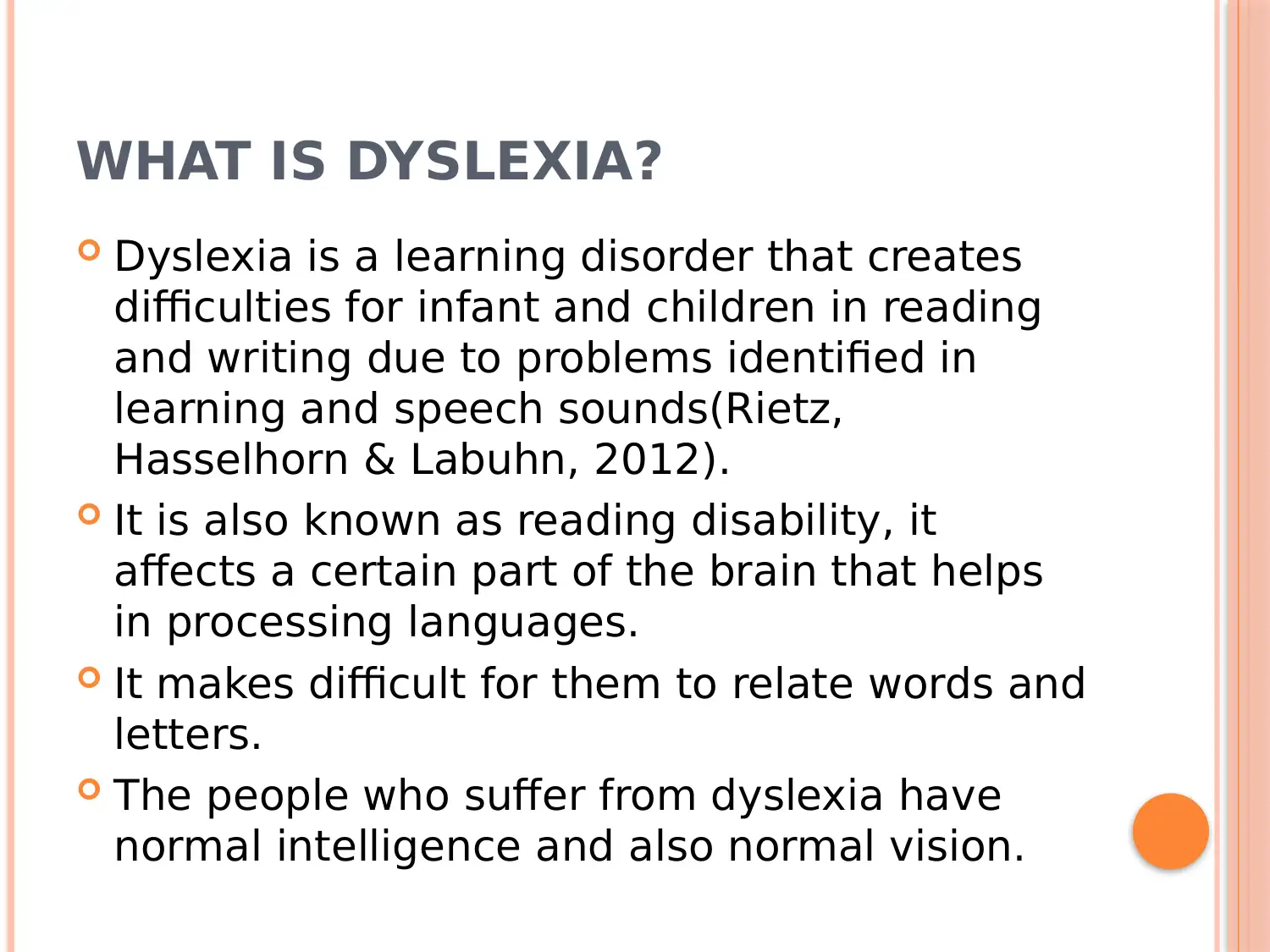
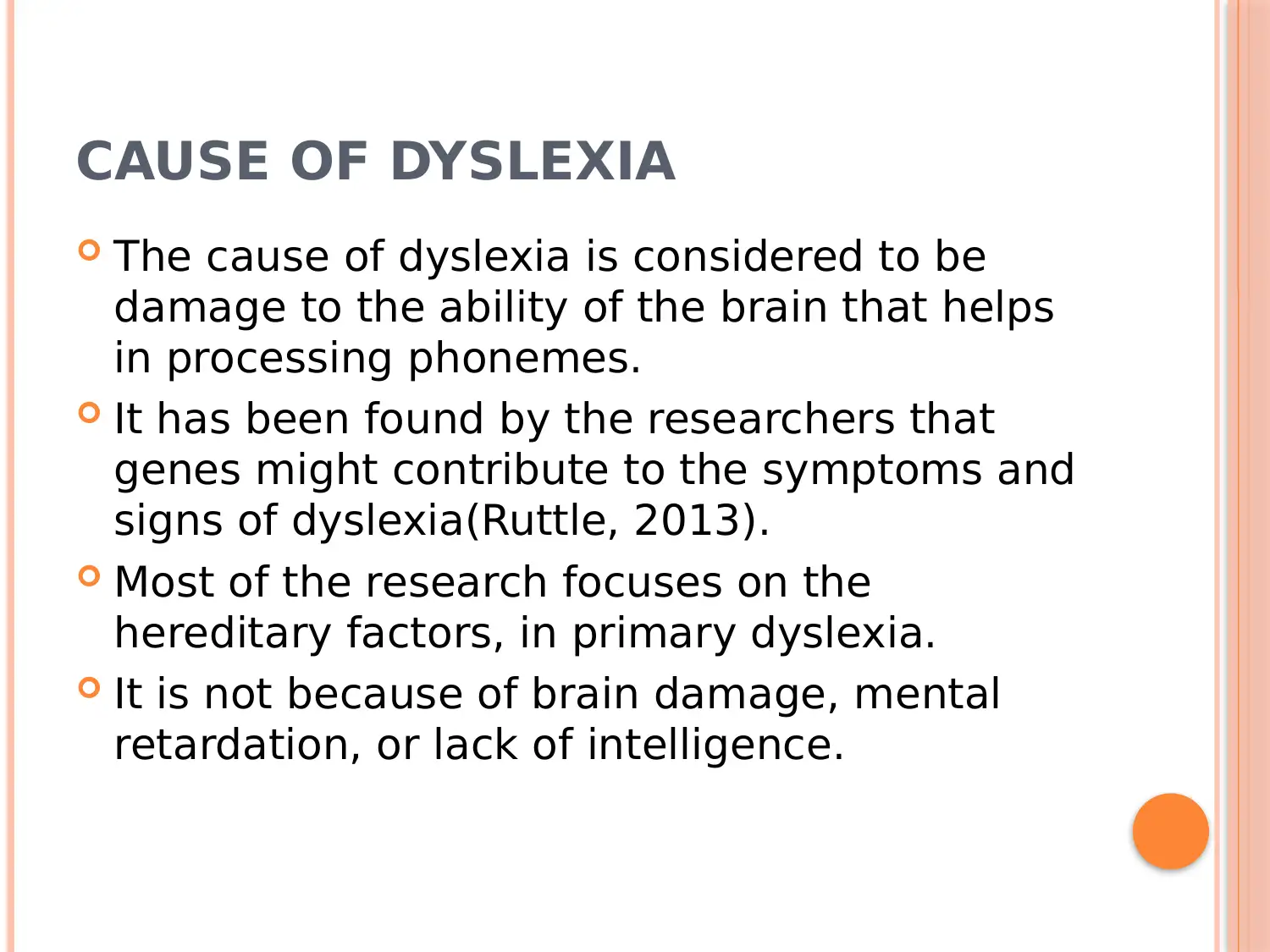

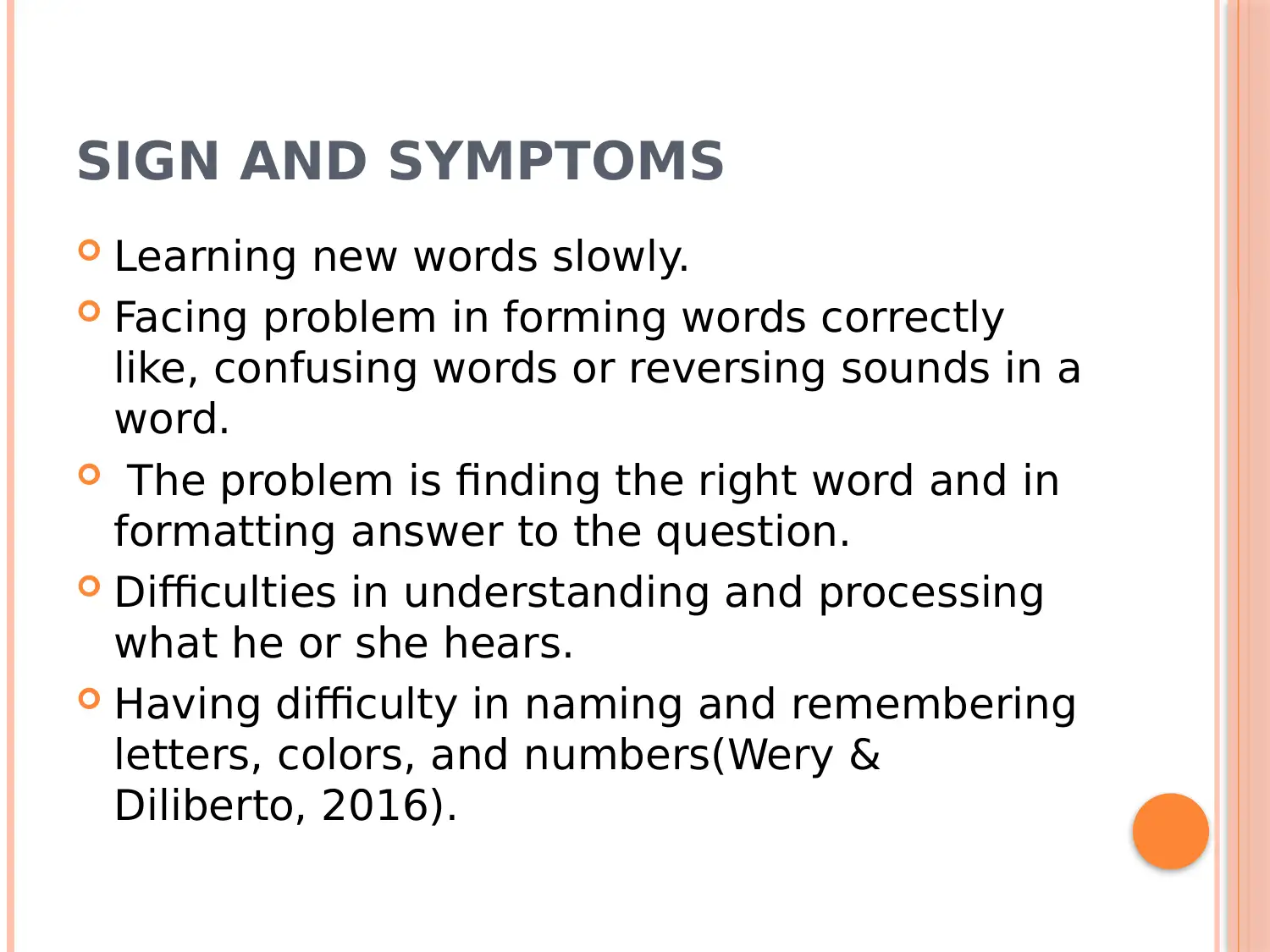
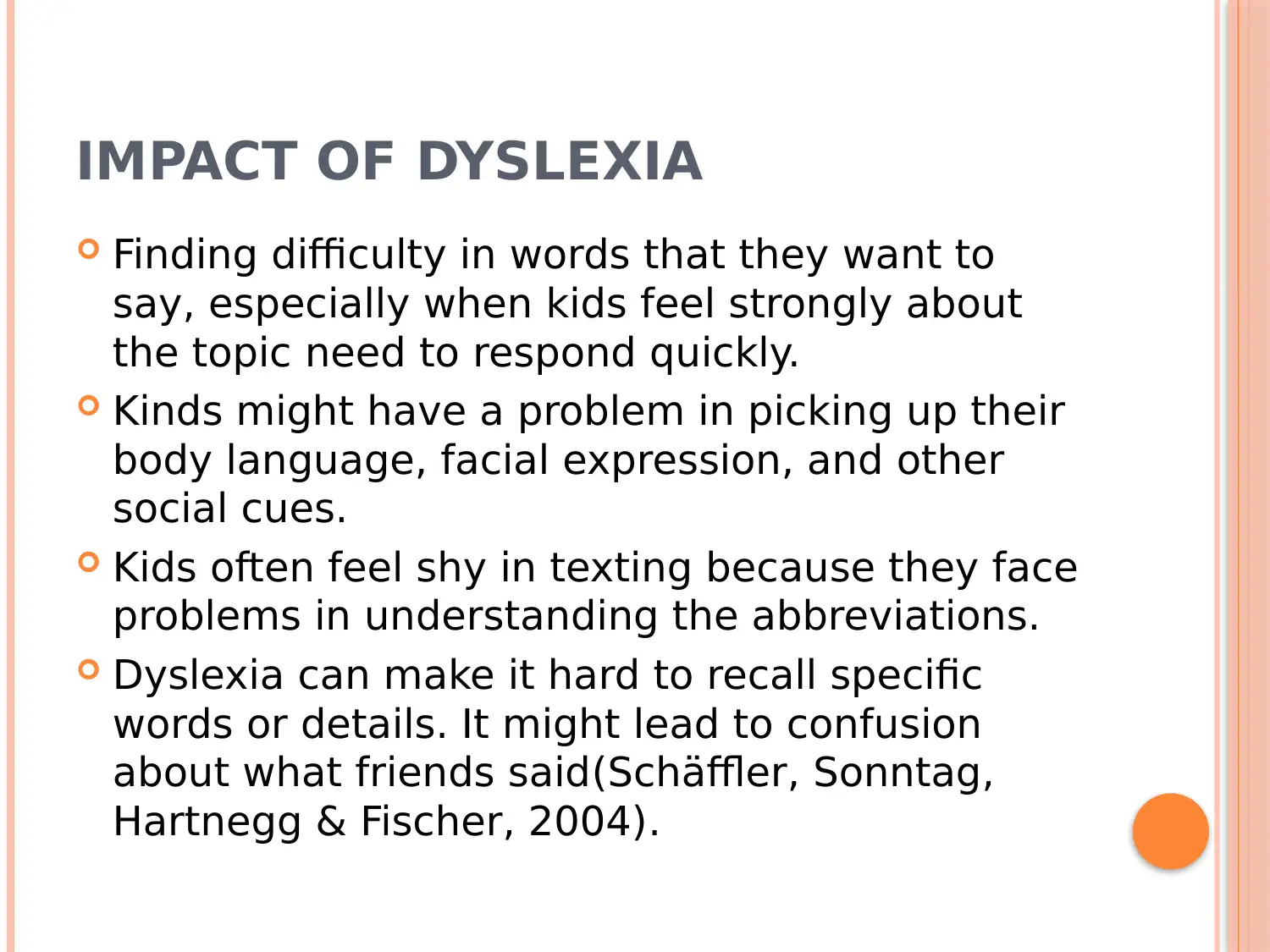
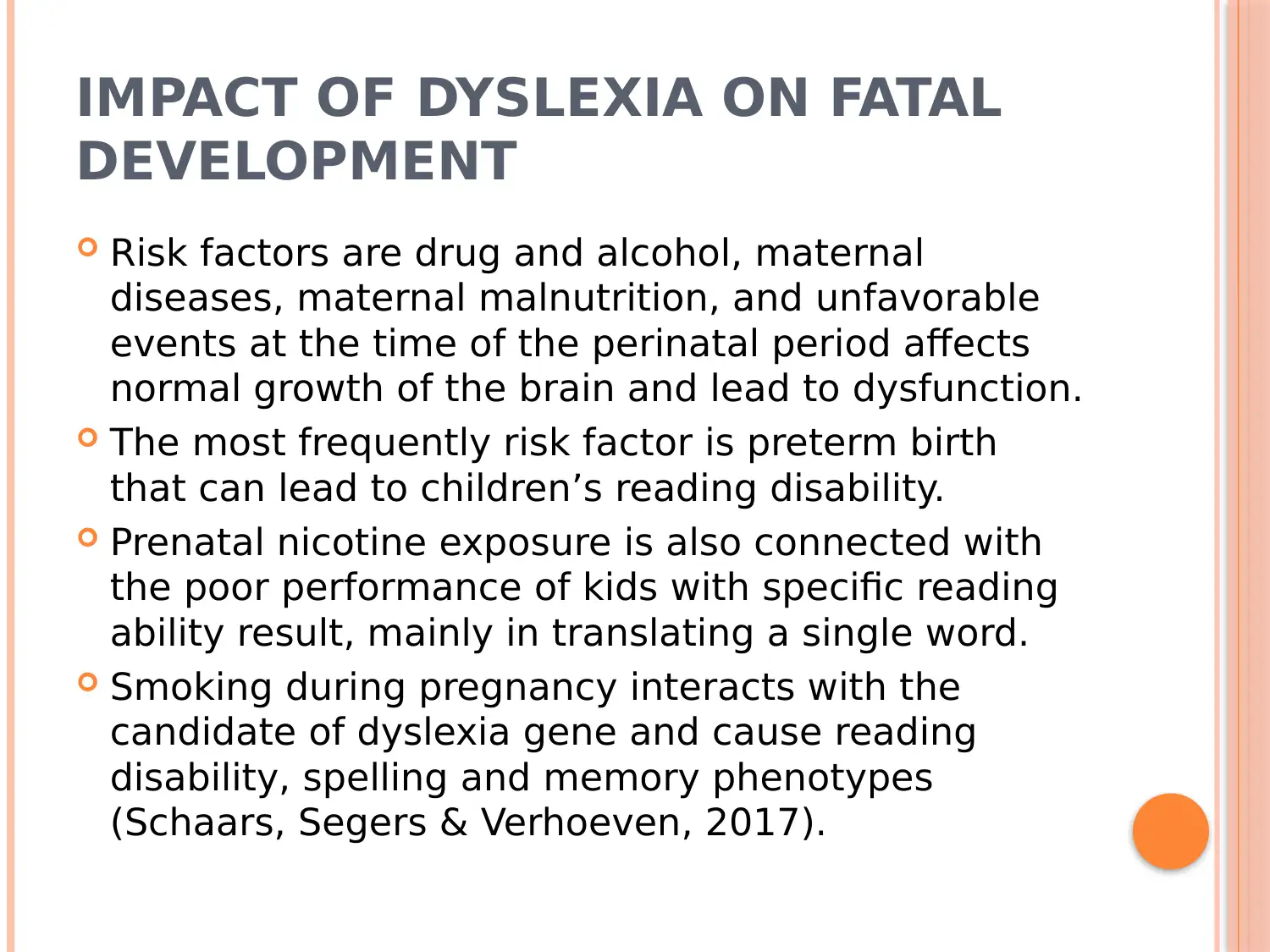
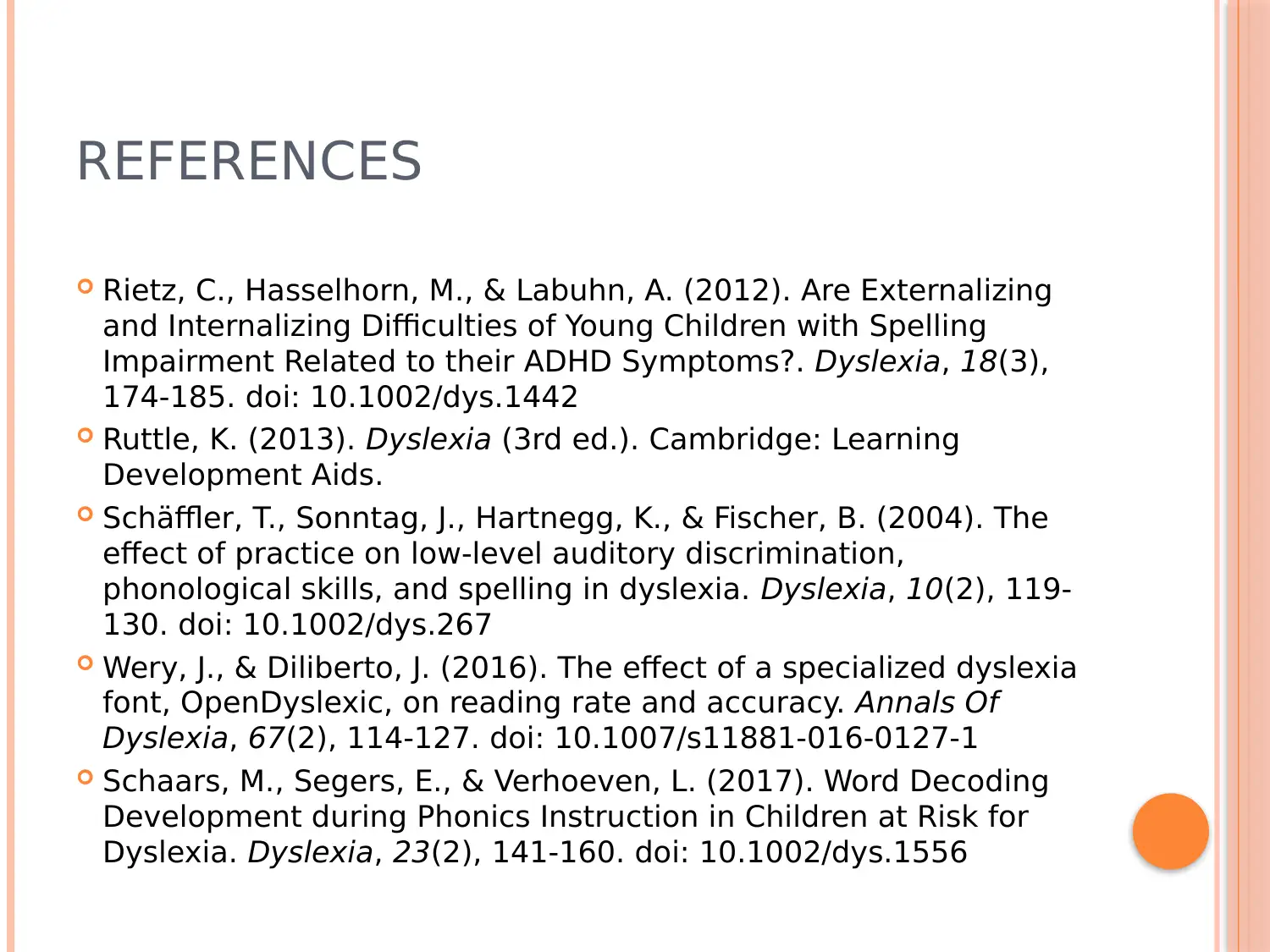



![[object Object]](/_next/static/media/star-bottom.7253800d.svg)